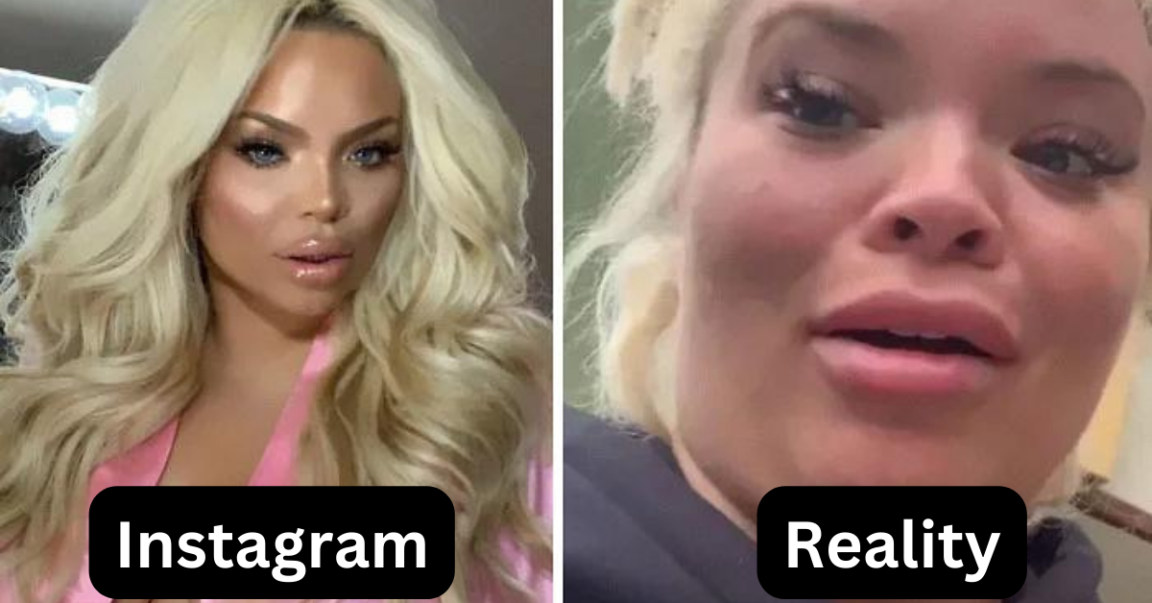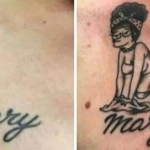The world of social media has become a double-edged sword. On one hand, it provides a platform to connect with friends and family, share our memories, and showcase our interests. On the other hand, it is also a breeding ground for unrealistic beauty standards that are damaging our self-esteem and mental health.
The pressure to present the perfect version of ourselves on social media has become overwhelming. We carefully curate our feeds, only posting images that are beautifully filtered, perfectly lit, and show us at our best. This has led to the creation of a false reality, where everyone seems to have it all together.
But this perfection is far from reality. The images we see on social media are carefully crafted and selected to show the best parts of someone’s life. The reality is that everyone has bad days, struggles, and insecurities, but those are the parts of life that are often left out of our feeds.
As a result, this distorted perception of beauty and perfection is affecting our self-esteem and mental health. It is causing us to compare ourselves to others and feel inadequate, leading to feelings of anxiety and depression. Studies have shown that the more time someone spends on social media, the more likely they are to experience symptoms of depression, anxiety, and low self-esteem.
So, what can we do to protect our mental health while still enjoying the benefits of social media? First and foremost, it’s important to recognize that the images we see on social media are not real. They are carefully curated and selected to show only the best parts of someone’s life. It’s crucial to remind ourselves that we are not seeing the full picture.
Additionally, we need to be more mindful of the content we consume. Instead of comparing ourselves to others, we need to focus on our own journey and what makes us unique. We can also limit our time on social media, take breaks, and engage in activities that promote self-care and self-love.
In conclusion, social media can be a wonderful tool for connection, but it is essential to understand its impact on our mental health. By recognizing the false realities it portrays, being mindful of the content we consume, and focusing on self-care and self-love, we can protect our mental health and enjoy the benefits of social media.
#1 The seemingly casual celebrity photos you see on Instagram are not those “perfect” pictures at all.

#2 Before the “daily” picture is posted on social media, hours of makeup, flattering poses, and other types of editing are completed.

#3 “I’m in awe of the change! People, don’t believe everything you see on Instagram.

#4 “Pardon me, what?”

#5 “This one’s for the guys out here. Magazines are merely a façade.



#6 An image used in the Good American campaign. Photoshop would be expected, but perhaps at a higher level of professionalism.



#7 Lip fillers vs. paparazzi on Instagram

#8 The “super bloom” in California is being ruined by Instagram users.

#9 “Kylie Jenner (on Instagram the same day vs. on TV)”



#10 When your eyebrow pokes through the brim of your cap.

#11 “Body so hot the fence and Colosseum distort”

#12 The “official White House portrait of Melania Trump”

#13 Calf day was obviously not scheduled.


#14 “Wait, are we now embarrassed by our hand lines? Nobody informed me? I’ve been acting like a complete chump in front of them!

#15 Who are these individuals?

#16 “Makeup artist demonstrates facetune’s true potential”

#17 “Youtube vs. Instagram”

#18 Make sure your pals are also using Photoshop.

#19 I’m 29 years old, and up until I came on this article, I believed the “no pore appearance” to be merely superb makeup. I feel foolish now, but also relieved.
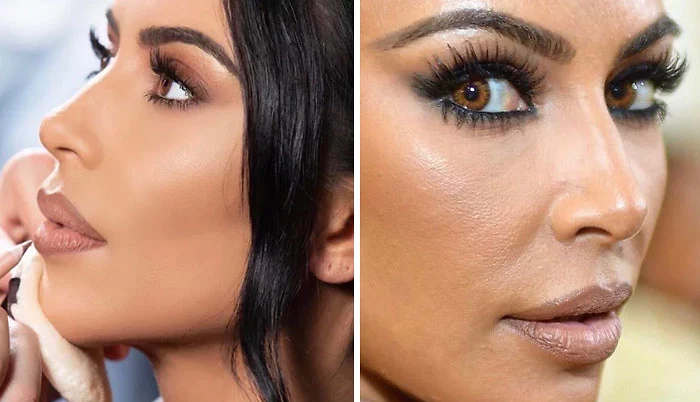
#20 “Two weeks separate the interview and the Instagram photo.”
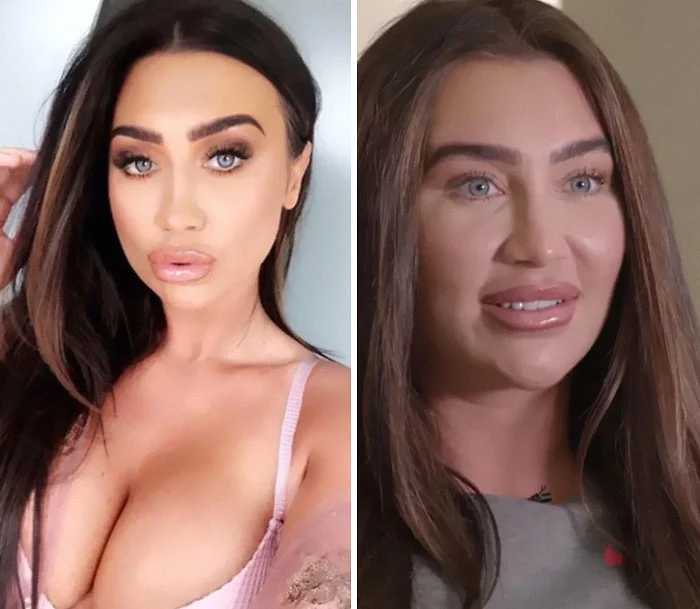
#21 Her personal Instagram against the tagged image… It was quickly untagged.
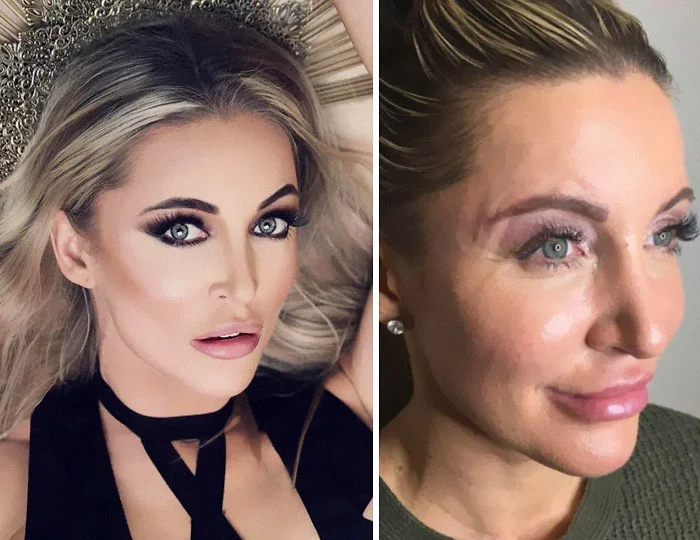
#22 “Face shed 20 kilograms?”
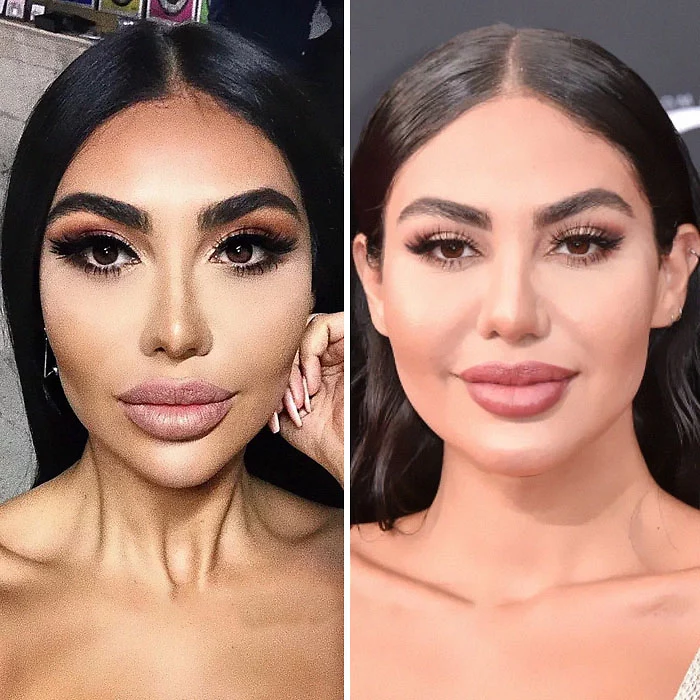


#23 “Red carpet vs. Instagram”

#24 “I have always been very envious of her.”





